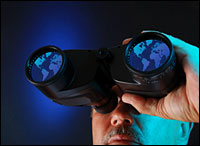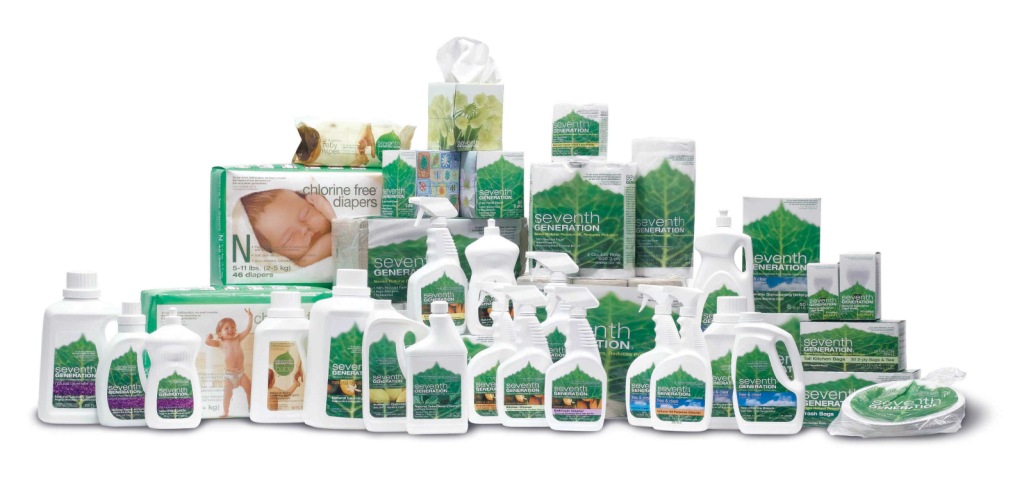
Ah, the daily grind: An endless progression of dreary days with that pathetic guy in the next cubicle who spends half his time complaining and the other half in loud personal conversations for which the phrase “too much information” was invented. And that boss of yours? One shudders.
But fear not. You can remake your living and land a green job — all in one fell swoop. Here are some career-planning basics to get you started.
Got goals?
One-year periods are just about perfect for career planning. Annual plans are just long enough to accommodate multiple projects that require lots of individual action steps, but not so long that you’re required to make random guesses about the unpredictable future. It helps that the entire work-world runs on annual plans and budgets.
It’s been said that goals are “dreams with deadlines,” and that feels right to me. Knowing that you want to reach a particular goal someday is helpful. Deciding that you want to make it happen before Memorial Day this year really brings things into sharp relief.
So, what are your green career goals for this year? Where do you want to be this time next year? It’s a banal cliché to say that you can’t plan your journey if you don’t know where you’re going. It’s also true.
The vision thing
When you sit down tonight and set your annual goals (or perhaps you thought I was just kidding around?), the chances are good that you’ll quickly run into a bigger question: What is my eco-career all about? What am I really trying to accomplish for myself, for people, and for the planet through my paid work?
It’s been my experience that the happiest Earth Workers have found a way to align their annual work goals with a broader vision that keeps them inspired even on days of mind-numbing tedium or difficult setbacks.
Homework assignment: A career vision is a picture of “mission accomplished.” It’s a snapshot of an ideal future state. Take a few minutes to think about yours.
What’s my line?
What profession are you in? It used to be so easy. You could say: I’m a journalist. I’m a marine biologist. I’m a progressive, good-looking alternative-energy hedge-fund manager pulling down $20 million a year seeking a partner for a casual affair on Maui. (Editor’s note: Send phone number.)
Careers and career paths were once clear and you could follow in the footsteps of those who walked the trail ahead of you. Things aren’t quite so clear today, especially in sustainability work. Fewer people are defining themselves by their disciplinary specialty and more are using the language of results. So yesterday’s mechanical engineer is today’s wind energy specialist is tomorrow’s climate-change solutions professional.
This is not just playing with semantics. How you define your profession will affect most of the career decisions you make this year.
What’s going on?
No matter how you define your goals, vision, and profession, you need to stay up-to-date on leading-edge developments in your area of work. At the very least, you should know who the leading employers are, how the primary issues and opportunities are defined, and which technological, economic, regulatory, and social factors are currently creating (or destroying) employment opportunities for people like you.
Fortunately, you are blessed by the fact that you are living in the internet age, where high quality information on even the most arcane career areas is available online. If your favorite search engine doesn’t deliver, don’t despair. Simply find one or two people who are achieving success in “your field” and ask them what newsletters, journals, websites, blogs, meetings, and conferences they depend upon to get the information they need.
The skilled set
Here’s a secret that’s not so secret. No matter how skilled and knowledgeable you think you are, you’ve already fallen behind and you’re going to keep falling behind. That’s how quickly things are changing. There is already a fifth grader out there who is way better at “Guitar Hero” than you can ever hope to be.
Setting aside time and money for additional training and education is no longer optional. It’s essential. Technical and computer skills are obvious examples, but not the only ones. There are also new and important advances in “soft” skills like leadership, supervision, teamwork, negotiation, and stakeholder involvement.
Homework assignment: What’s on your training and education agenda for this year?
NetWork
Other than the quality of your skills, the quality of your network (or “practitioner community,” if you prefer) is your most important green-career asset.
You can measure the quality of your network in two ways: who’s in it (first) and how well you stay in touch with each other (second). Both are essential. Take a look at your Rolodex (aka Blackberry, iPhone, Palm Pilot, database, little black book, etc.) with three questions in mind:
- Who’s in my network that I don’t stay in touch with nearly enough?
- Who’s in my network that I’m really not committed to staying in touch with?
- Who’s not in my network although I would like them to be?
Peter Drucker’s challenge
The management guru Peter Drucker once said: “There is nothing quite so meaningless as doing well that which need not be done at all.” Here is one of the great challenges for 21st century environmentalists. There are pressing threats to people and other species all around us and far too few of us to address them all effectively. We can’t afford to waste too much of our time, energy, passion, and money on “doing well that which need not be done at all.” As this new year begins, take an honest look at the projects and programs you’re working on and ask whether their successful completion will make a meaningful difference on the concerns that you care about.
Old, sick, and poor?
“Job security” seems like an oxymoron. Conventional pensions are becoming quaint anachronisms in many industries. Social Security is more than a bit shaky. Gambling on big increases in the value of your house or stock portfolio doesn’t appear to be such a smart bet. It sometimes seems like Lily Tomlin was right when she quipped that “We’re all in this alone.”
Financial planning for retirement (whether you’re 25 or 55) has to be a part of your green-career thinking. Good health, frugal living, strong community ties, close friends, and loving families will take you a long way, but you’re going to need money, too.


